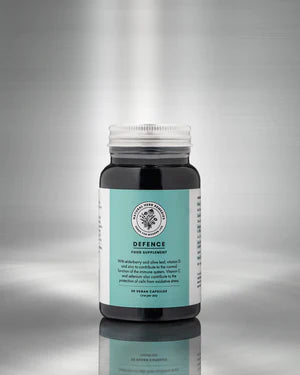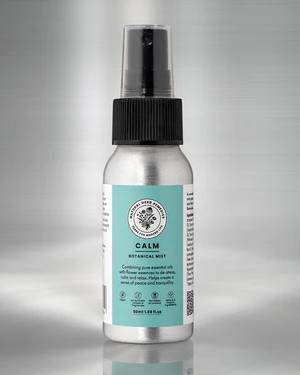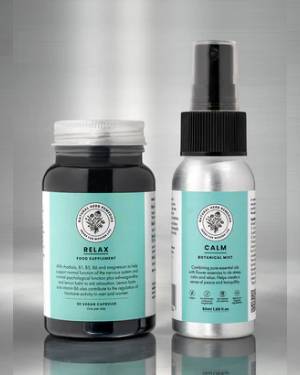While menopause can bring about a range of physical and emotional symptoms, such as hot flushes, mood swings, and fatigue, natural herb remedies and essential oils can help alleviate these symptoms. From soy products and black cohosh to essential oils like lavender and clary sage, nature has provided us with a wealth of options to help make menopause a little easier. So why not give them a try and see if they can bring some relief to your menopause journey?
Menopause
Natural Remedies for Menopause
Menopause can bring about a range of physical and emotional changes that can be difficult to cope with. But fear not, nature has provided us with a wealth of herbs and essential oils that can help relieve symptoms such as hot flushes, mood swings, fatigue and stress. Our selection of natural herb remedies are not only effective but also promote feelings of calm, joy, increased energy and relaxation. Browse through our range of products and find the perfect remedy to help you navigate through menopause with greater ease.
Did you know?
Menopause Essential Oils and Menopause Natural Remedies
Our products are specially formulated with herbs and nutrients, and essential oils and flower remedies, including Siberian Ginseng, Ashwagandha and Jasmine Essential Oil which may help alleviate menopause symptoms. Natural ingredients often work together to provide relief from common symptoms such as hot flushes, mood swings, and stress. Experience the benefits of a balanced, holistic approach to managing menopause with our products.
Menopause, A Closer Look
Menopause is a natural biological process that marks the end of a woman's reproductive years. It is characterized by the cessation of menstrual periods and the decline in oestrogen and progesterone levels. This change can lead to a range of physical and emotional symptoms, including hot flushes, night sweats, mood swings, vaginal dryness, and sleep disturbances. While pharmaceutical hormone replacement therapy (HRT) is a treatment option for some, many women prefer to use natural remedies to manage their symptoms. Coming off HRT should be done in consultation with your GP and not done suddenly.
Herbal Supplements
One popular natural remedy for menopause is herbal supplements, such as red clover, dong quai and Siberian Ginseng. The first two herbs contain phytoestrogens, which are plant-based compounds that mimic the effects of estrogen in the body. They can help relieve hot flushes, night sweats, and vaginal dryness. Siberian Ginseng is known to bind to estrogen receptor sites and may, therefore, lessen the effects of estrogen withdrawal in women who are experiencing menopause.
Acupuncture
Another natural remedy for menopause is acupuncture. This ancient Chinese practice involves the insertion of fine needles into specific points on the body to stimulate energy flow and promote healing. Research has shown that acupuncture can help reduce hot flushes and improve sleep quality in menopausal women.
Exercise
Exercise and diet are also important natural remedies for menopause. Regular physical activity can help alleviate hot flushes, mood swings, and sleep disturbances. Additionally, maintaining a healthy diet that is rich in fruits, vegetables, whole grains, and lean protein can help regulate hormones and reduce the risk of heart disease and osteoporosis.
Lifestyle Modifications
Finally, lifestyle modifications, such as stress reduction techniques, such as yoga and mindfulness, can also help manage the symptoms of menopause. By reducing stress, women can lower the levels of cortisol, a stress hormone that can worsen menopausal symptoms.
Essential Oils
Essential oils have been used for centuries to improve mood and reduce stress. For example, lavender, Sandalwood, and jasmine essential oils have been found to be effective for reducing anxiety and improving mood. Essential oils can be used in a variety of ways, including aromatherapy, massage, and topical application.span>
In Conclusion
In conclusion, menopause is a natural process that can cause significant physical and emotional symptoms as we work out a way of getting back into a better balance. There are a range of natural remedies that can help manage these symptoms. Herbal supplements, acupuncture, exercise, diet, and lifestyle modifications are all effective ways to alleviate the effects of menopause and promote overall health and well-being. However, it's important to talk to your healthcare provider before starting any new treatment, especially if you have pre-existing medical conditions or are taking medications.
Shop for Menopause Solutions
FAQ
When does menopause start?
Menopause typically starts between the ages of 45 and 55, although it can occur earlier or later.
How long does menopause last?
Menopause lasts anywhere from a few years to several decades, with the average being around 4-5 years.
What happens during menopause?
During menopause, a woman's ovaries stop producing eggs and hormone levels (oestrogen and progesterone) drop, leading to a range of symptoms such as hot flushes, night sweats, mood swings, and vaginal dryness.
What helps with menopause naturally?
There are several treatments that can help with menopause including lifestyle changes, and natural remedies such as herbal supplements, aromatherapy and acupuncture.
What vitamins help with menopause?
Some vitamins that may help alleviate menopause symptoms include Vitamin D, Vitamin E, Vitamin B complex and calcium.
What is the best natural remedy for menopause?
The best natural remedy for menopause can vary from person to person, as everyone's body reacts differently. Some popular natural remedies include soy products, black cohosh, red clover, Siberian ginseng, ashwagandha and B complex. Jasmine essential oil and frankincense essential oil can also be helpful. It’s best to talk to a natural health practitioner to tailor the best treatments for you.
Also, flower essences can be a great way to help with the transition time of the menopause. Agrimony Bach Flower Remedy will help if you are hiding your true feelings behind a cheerful facade, Cherry Plum is for feelings of desperation and Walnut for helping to make the changes necessary to improve health and wellbeing - Walnut is a key Bach Flower Remedy for times of transition.








